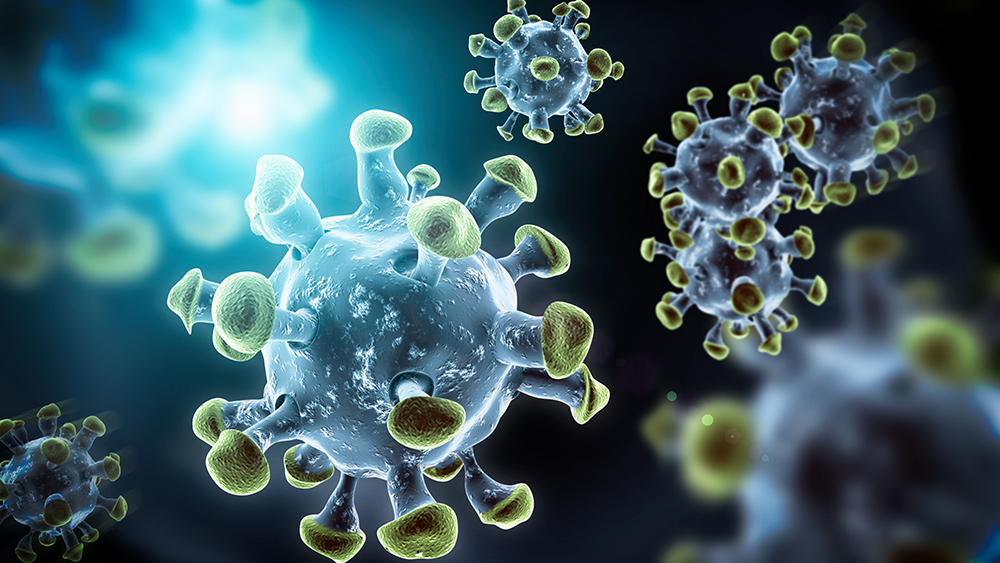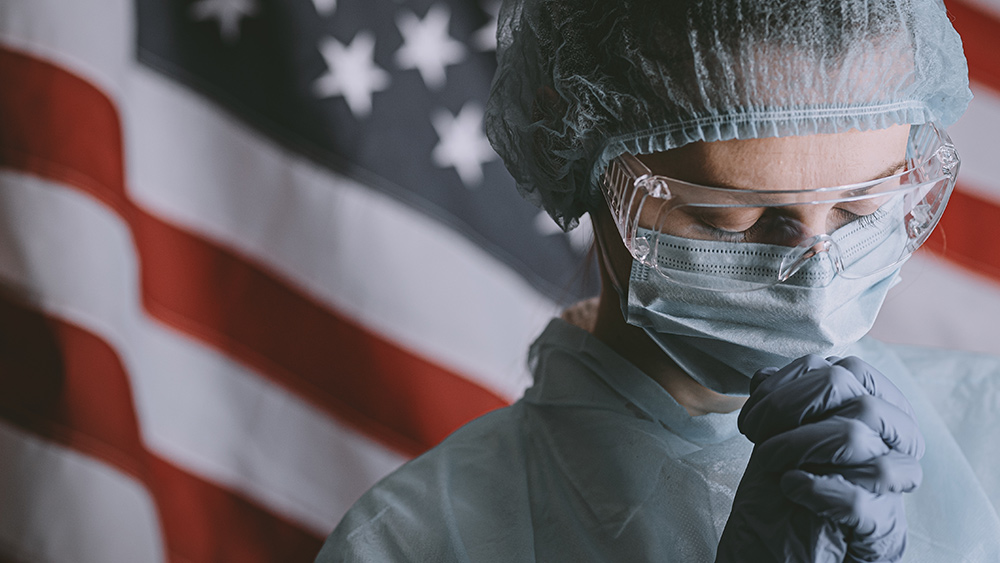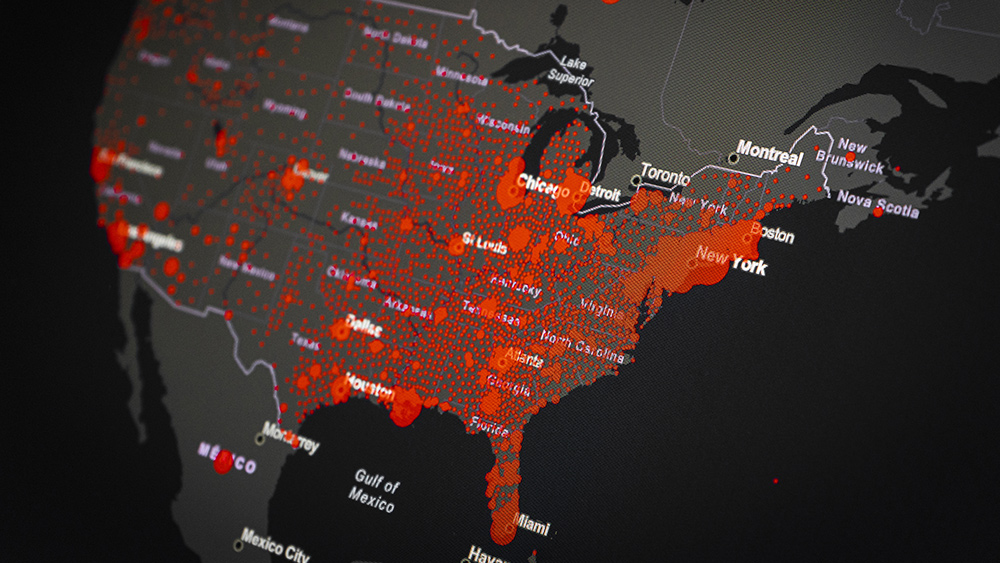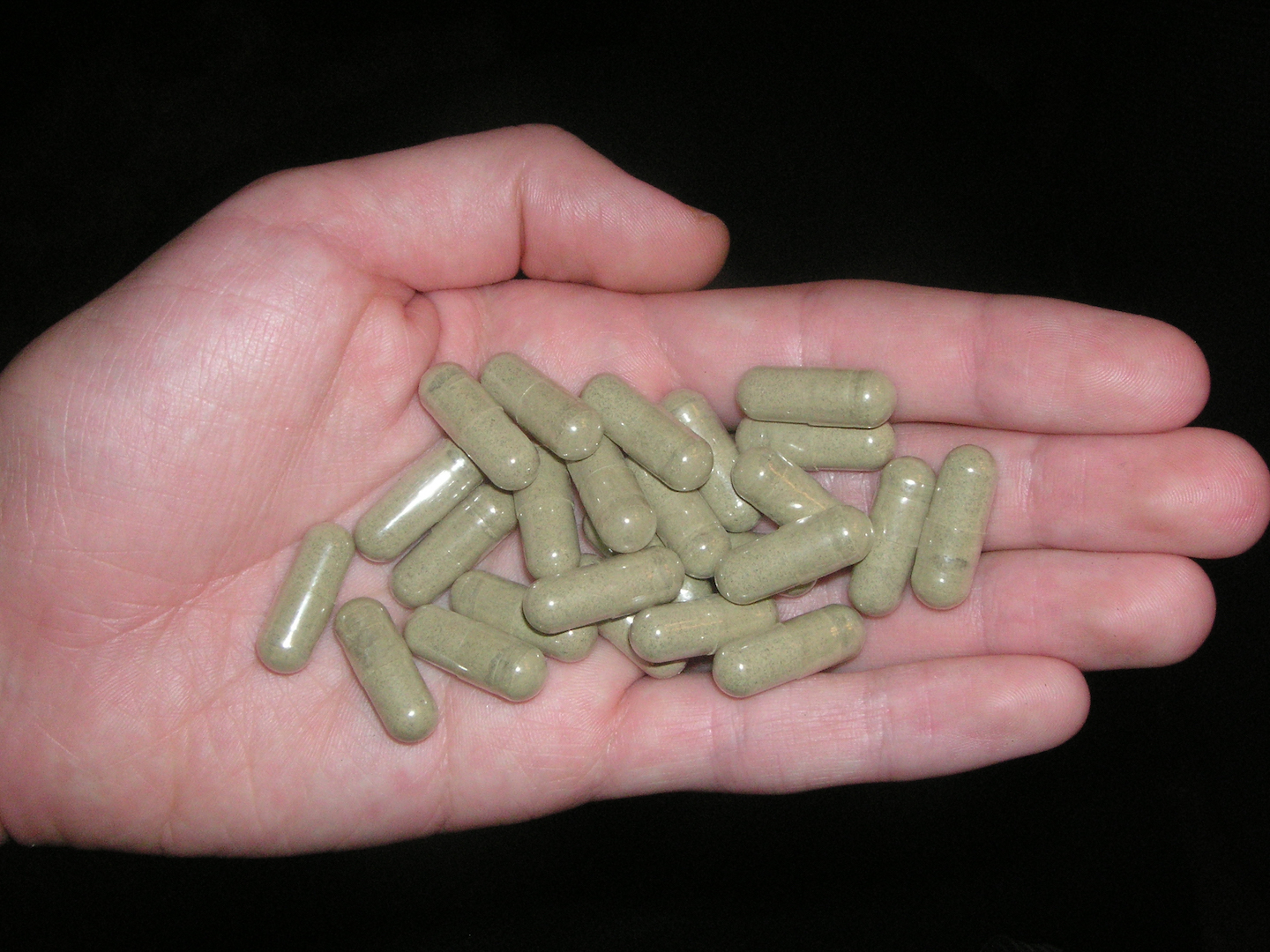New studies reveal how coronavirus can cause blood clotting, skin problems
05/06/2020 / By Ralph Flores

A new study published in the British Journal of Hematology revealed that COVID-19 can cause micro-clots in the lungs that result in abnormal blood clotting. In their report, clinicians at RCSI University of Medicine and Health Sciences observed that patients admitted to hospital with severe COVID-19 infection showed signs of abnormal blood clotting, which, in some cases, played a key role in their deaths.
“Our novel findings demonstrate that COVID-19 is associated with a unique type of blood clotting disorder that is primarily [focused] within the lungs and which undoubtedly contributes to the high levels of mortality being seen in patients with COVID-19,” explained senior author Dr. James O’Donnell, who is also the director of the Irish Centre for Vascular Biology at RSCI.
This scenario, where the lungs have both small blood clots and pneumonia, isn’t seen with other types of lung infection. O’Donnell said that this could explain why many patients with severe COVID-19 infections have their blood oxygen levels drop drastically.
“Understanding how these micro-clots are being formed within the lung is critical so that we can develop more effective treatments for our patients, particularly those in high-risk groups,” he added.
The study also noted that this abnormal blood-clotting can increase the risk for heart attacks and strokes.
The team believes that their work can pave the way for other studies to test the effectiveness of blood-thinning treatments, especially for high-risk populations.
Coronavirus may also affect the skin
In another study, researchers from Ramon y Cajal Hospital in Madrid reported the case of a 48-year-old man who developed a severe skin rash on his posterior, lower abdomen, and thighs – as well as other COVID-19 symptoms such as fever, chest pain, and shortness of breath. In their report, which was published on JAMA Dermatology, the team noted while the man had a history of hypertension, he had not taken new drugs during the year.
The researchers noted that only one other report of a COVID-19 patient having a skin rash was recorded. In earlier cases in China, similar symptoms were recorded; however, these were seen in patients with comorbidities, drug reactions and even occupational skin diseases.
“We hope that, in the upcoming months, skin rashes associated with COVID-19 will be better understood,” the authors concluded. (Related: Doctors concerned as skin of recovering COVID-19 patients in China turns dark brown.)
Prior to their findings, researchers from hard-hit areas like Italy and Spain reported cases of painful lesions on patients’ toes, as well as their Achilles’ heels and soles of the feet. Most reported cases were in children, teens and young adults, and some experts believe that the symptom could be a potential sign of healthy immune response.
In particular, a small study in Italy revealed that COVID-19 patients can develop skin rashes and lesions. The report, which was published in the Journal of the European Academy of Dermatology and Venerology, was the first body of work to explore how COVID-19 affected the skin.
Sebastiano Recalcati, a dermatologist at Lecco Hospital in northern Italy, examined a total of 88 coronavirus patients and found that around 20 percent exhibited skin issues. Some patients reported that their skin issues started at the onset of their COVID-19 symptoms, while others reported developed symptoms after being admitted to hospital. Recalcati noted that symptoms ranged from chickenpox-like blisters to hives, with most appearing in the torso. In response to Recalcati’s findings, dermatologists from Ramon y Cajal Hospital reported the case of a 32-year-old patient who developed hive-like rashes after developing COVID-19 symptoms.
Meanwhile, a separate case published in JAMA Dermatology reported the case of an elderly woman who developed skin lesions at the onset of COVID-19 symptoms. However, the team behind the study noted that the woman also had preexisting conditions like diabetes, hypertension and heart disease, which they indicated could also be potential causes of her lesions.
Learn more about the ongoing coronavirus pandemic at Pandemic.news.
Sources include:
Tagged Under: biological weapon, bioweapons, blood clotting, coronavirus, covid-19, Flu, foot lesions, foot sore, foot sores, infections, Italy, lesions, Lungs, outbreak, outreak, pandemic, Spain, strokes, superbugs, symptoms, virus

















